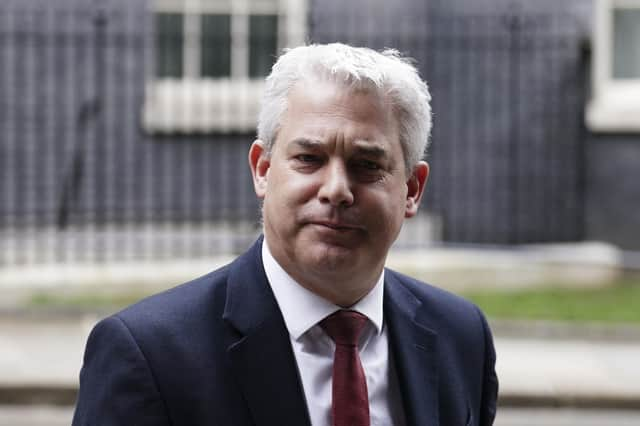Downing Street and junior doctors in deadlock over pay demands


Yesterday the Prime Minister’s official spokesman said that there are “no plans” to bring in the Acas conciliation service to deal with the strike action, after the Academy of Medical Royal Colleges called for the move on Wednesday evening.
“In the first instance, the Health Secretary is ready to speak directly to the BMA, as soon as they pause strike action,” he said, adding: “As the Health Secretary has said before, we need to move away from the starting position of 35%.”
Advertisement
Hide AdAdvertisement
Hide AdSir Chris Wormald, permanent secretary at the Department of Health and Social Care, also told MPs on Thursday that third-party mediation was “not the Government’s preferred route, that is not something we would be taking up”.
The BMA asked the Government last week to enter talks with Acas to end the dispute over pay, with Acas saying that it is “well prepared and ready to help”.
Chairman of the BMA council, Professor Philip Banfield, told BBC Radio 4’s Today programme: “There is no number that is set in stone here – it is the principle of restoring pay that has been lost in its value. In order to discuss what that means and how that is achieved, it needs people to sit around the table.
Pressed on whether the BMA would consider suspending strikes and entering talks, Prof Banfield said: “We haven’t actually got a strike announced at this point in time.
Advertisement
Hide AdAdvertisement
Hide Ad“So here is the time to get in the room and talk. It can be done rapidly.”
Also speaking to Today, Professor Dame Helen Stokes-Lampard, chairwoman of the Academy of Medical Royal Colleges, urged both sides to show some flexibility and return to the negotiating table, saying that “patients are suffering” as the dispute continues.
Yesterday it was announced that the Association of School and College Leaders (ASCL) is due to hold a formal ballot for national strike action in England for the first time in its history.
The Prime Minister’s official spokesman said Rishi Sunak is “concerned about the overall impact of strike action on children’s education”, but does not want to “pre-empt what their members may choose to do”.
Advertisement
Hide AdAdvertisement
Hide AdThey become the latest group, along with healthcare workers to consider strike action which has affected public services up and down the country.
Labour last night said that nearly five million patients every month wait more than a fortnight for a GP appointment.
In the past five months, 24 million appointments have taken place more than two weeks after being requested – almost five million a month on average, according to the party’s analysis of NHS England figures.
Today, the shadow health secretary, Wes Streeting, will give a speech at the King’s Fund think tank, setting out the specifics of Labour’s own proposals for the NHS.
Advertisement
Hide AdAdvertisement
Hide AdAhead of the speech, Mr Streeting said: “Patients are finding it impossible to get a GP appointment when they need one, after 13 years of Conservative broken promises and understaffing of the NHS.
“These unacceptable waiting times mean illness will go undiagnosed for longer, while patients are left in pain and discomfort for weeks, or even months.
A Conservative Party spokesman defended its record on doctor recruitment and accused Labour of not being “serious” in its plans.
He said: “If Labour were serious about cutting waiting lists, they would have backed our plan to get more doctors into the NHS; instead they voted to send doctors into early retirement.
“Labour’s latest unfunded scheme to restructure the NHS has been slammed by doctors as ‘dangerous’ and costing ‘a fortune’.”